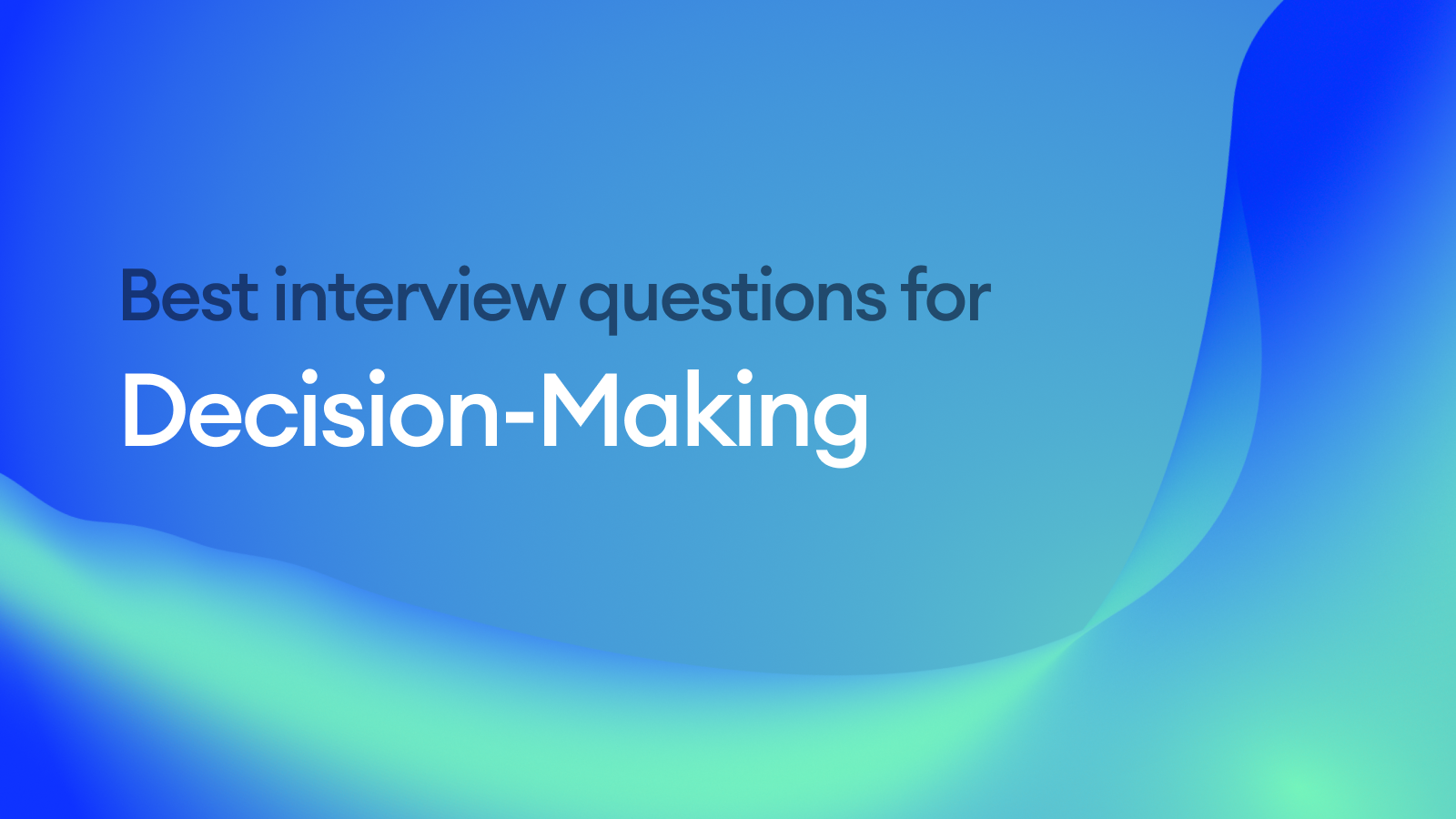Effective decision-making is a critical skill in any role, influencing everything from daily operations to long-term strategic planning. For employers, assessing a candidate's decision-making abilities during the interview process can provide deep insights into their problem-solving capabilities, leadership potential, and overall fit within the organization. This comprehensive guide explores the best interview questions to evaluate decision-making skills, what to look for in the answers, and effective strategies to assess these abilities during hiring.
Decision-Making Interview Questions
- Can you describe a difficult decision you had to make in your last role and the process you used to make it?
- Tell me about a time when you had to make a decision with incomplete information. How did you handle it?
- How do you prioritize tasks when faced with multiple deadlines?
- Describe a situation where you had to choose between taking a risk and maintaining the status quo. What was your decision and why?
- Can you provide an example of a time when your decision was unpopular and how you handled the feedback?
- How do you incorporate feedback and data into your decision-making process?
- Explain a situation where you had to make a quick decision. What was the outcome?
- Describe a time when you collaborated with others to make a significant decision. What was your role?
- How do you evaluate the potential impacts of your decisions on your team and the organization?
- What steps do you take to ensure your decisions align with the company's goals and values?
What to Look for in Answers
- Structured Approach: Candidates should demonstrate a clear, logical process for making decisions, indicating their ability to think methodically.
- Analytical Skills: Look for evidence of data-driven decision-making, showcasing their ability to analyze information critically.
- Problem-Solving Ability: Responses should highlight how candidates identify problems, consider alternatives, and implement solutions effectively.
- Adaptability: Assess whether the candidate can adjust their decision-making process in dynamic or uncertain environments.
- Accountability: Candidates should show ownership of their decisions, including acknowledging mistakes and learning from them.
- Communication Skills: Effective communicators can articulate their decision-making process clearly and collaborate with others when necessary.
- Alignment with Values: Answers should reflect the candidate’s ability to align their decisions with organizational goals and ethical standards.
- Resilience: Look for examples where candidates stayed committed to their decisions despite challenges or opposition.
- Impact Awareness: Candidates should consider the broader implications of their decisions on the team and organization.
- Proactiveness: Evidence of anticipating potential issues and making informed decisions proactively.
Tips for Evaluating Decision-Making During the Hiring Process
-
Use Behavioral Questions
Incorporate questions that require candidates to recount past experiences, providing concrete examples of their decision-making in real situations. -
Assess Logical Reasoning
Present hypothetical scenarios relevant to the role and ask candidates to outline their decision-making process, evaluating their critical thinking and problem-solving skills. -
Evaluate Consistency
Look for consistency in candidates’ answers across different questions to gauge the reliability of their decision-making abilities. -
Consider Cultural Fit
Ensure that the candidate’s decision-making style aligns with your organization’s culture and values to facilitate seamless integration. -
Look for Diverse Perspectives
Encourage candidates to discuss how they consider various viewpoints and collaborate with others, highlighting their ability to incorporate diverse inputs into their decisions. -
Check for Results
Focus on the outcomes of the candidates’ decisions, assessing their ability to achieve positive results and learn from any setbacks. -
Probe for Depth
Ask follow-up questions to delve deeper into the reasoning behind their decisions, ensuring a thorough understanding of their decision-making process. -
Balance Qualitative and Quantitative Assessments
Combine insights from interviews with other evaluation methods, such as assessments or references, to get a holistic view of the candidate’s decision-making skills. -
Observe Non-Verbal Cues
Pay attention to the candidate’s body language and confidence when discussing their decision-making experiences, as this can provide additional context to their verbal responses. -
Tailor Questions to the Role
Customize your decision-making questions to reflect the specific challenges and responsibilities of the position, ensuring relevance and effectiveness in assessing the necessary skills.
Summary
Assessing a candidate's decision-making abilities is essential for identifying individuals who can navigate complex challenges, drive progress, and align with your organization's objectives. By asking targeted interview questions and knowing what to look for in their responses, employers can gain valuable insights into a candidate's problem-solving approach, analytical skills, and adaptability. Additionally, employing effective evaluation strategies ensures a comprehensive assessment of these critical skills, ultimately leading to more informed and successful hiring decisions. Investing time in understanding and evaluating decision-making during the hiring process can significantly contribute to building a capable and resilient team.


